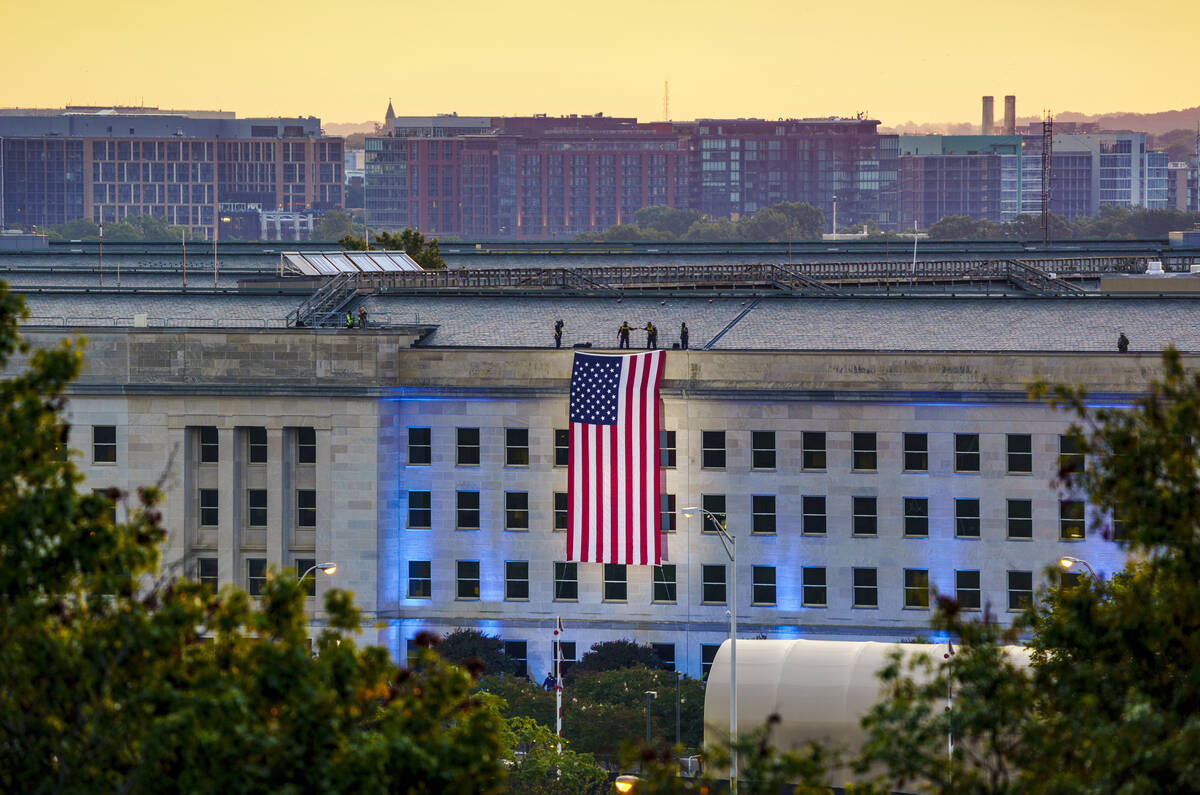STEVE SEBELIUS: Justice in Kabul
On Sept. 11, 2001, clouds of thick gray and black smoke rose over lower Manhattan as the World Trade Center towers fell, taking nearly 3,000 American lives, innocent civilians and first responders rushing to help.
Early morning on July 31 in Kabul, Afghanistan, another, smaller cloud of smoke rose, taking just one life, that of Ayman al-Zawahiri, the longtime leader of al-Qaida.
America had been hunting for al-Zawahiri for more than two decades. On Sunday, that hunt came to an end with two Hellfire missiles fired from a drone.
American intelligence authorities believe al-Zawahiri was a key plotter of the Sept. 11 attacks, every bit as responsible as Osama bin Laden for the destruction of that day.
“We make it clear again tonight, that no matter how long it takes, no matter where you hide, if you are a threat to our people, the United States will find out and take you out,” said President Joe Biden, announcing the successful operation.
It was a political win for Biden, who in the Obama administration was reportedly one of a handful of officials to oppose the raid that killed bin Laden in Abbottabad, Pakistan, on May 2, 2011. But it was also his duty, protecting and defending the United States from all enemies.
Many things have changed since that terrible day in 2001, but many things are the same. President George W. Bush successfully routed the oppressive Taliban government from Afghanistan, where al-Qaida had a safe haven before Sept. 11.
But on July 31, with the Taliban back in charge following the chaotic and deadly withdrawal of U.S. forces from Afghanistan in August 2021, al-Zawahiri was back in that country’s capital. And not in a cave or a hovel; his home was located in a well-off section of town frequented by Taliban officials.
In between Sept. 11, 2001, and July 31, 2,448 American service members gave their lives in Afghanistan in pursuit of the U.S. mission there.
It wasn’t just Sept. 11 that al-Zawahiri helped plan. It was also the East African embassy bombings in Nairobi, Kenya, and Dar es Salaam, Tanzania, on Aug. 7, 1998, which killed 224 people, including 12 Americans. He helped plan the suicide bombing attack against the USS Cole on Oct. 12, 2000, which killed 17 sailors and wounded another 37.
Killing al-Zawahiri won’t bring those people back. It won’t rebuild the Twin Towers or reunite the brave service members who gave their lives in a foreign desert or at sea with their still-grieving families.
But it will prevent him from ever taking another American life. And that’s something.
Of course, al-Zawahiri will be replaced by someone else, perhaps not as intelligent or cunning, but someone. And that person may share al-Zawahiri’s hatred of secular governments.
That’s the problem with committed theocrats: If you believe God is on your side, and that he desires a literal kingdom here on Earth, any moderation in tactics is betrayal of the divine will.
That’s why there can be no compromise, no detente with anyone who seeks to overthrow secular government, democracy or the values of the Enlightenment.
We are in a battle for civilization itself.
For al-Zawahiri, his fate was sealed the moment he designed to make war on America. Anyone who would follow in his footsteps should recognize that his fate will be theirs, perhaps not immediately, or even next year, or in 10 years, but someday, as surely as the sun rises, justice will come.
In the words of another American president, reacting to another deadly sneak attack on American soil 80 years ago: “No matter how long it may take us to overcome this premeditated invasion, the American people in their righteous might will win through to absolute victory.”
Contact Steve Sebelius at SSebelius@reviewjournal.com or 702-383-0253. Follow @SteveSebelius on Twitter.



















